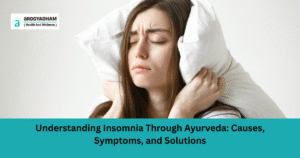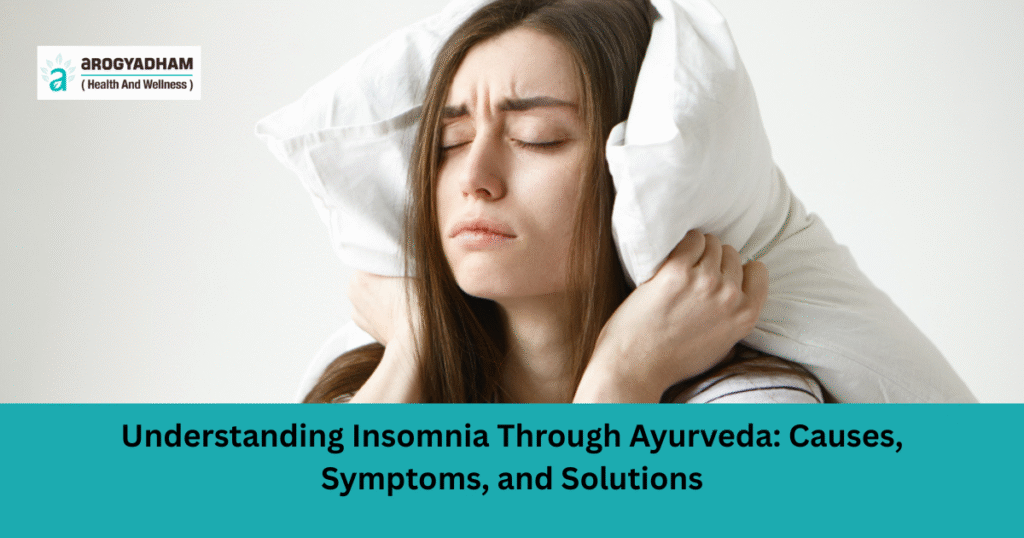Best Alcohol Addiction Treatment & Rehabilitation Centre
- Home
- /
- Ayurvedic Treatment
- /
- Best Alcohol Addiction Treatment...

Overcoming Alcohol Addiction with Care and Compassion
Welcome to Arogyadham Health and Wellness, where hope meets healing on the journey to sobriety. Our centre is located in serene surroundings and serves as a beacon of hope for individuals struggling with alcohol addiction. At Arogyadham Health and Wellness, we understand the challenges and complexities of addiction and are committed to providing comprehensive and compassionate care, including specialized Alcohol Addiction Treatment, to support your recovery journey.
Our team of experienced professionals, including physicians, therapists, counsellors, and support staff, offer personalized treatment plans customized to address each individual’s unique needs. Our holistic approach focuses on treating the mind, body, and spirit, empowering you to achieve lasting sobriety and reclaim your life.
Whether you’re seeking detoxification, rehabilitation, or ongoing support, Arogyadham Health and Wellness guides you through every step. We believe that recovery is possible for everyone and are dedicated to helping you start on a healthier, happier, and alcohol-free life.
Join us at Arogyadham Health and Wellness and take the first step towards a brighter tomorrow. Your journey to recovery starts here.

How to Stop Vomiting After Drinking Alcohol: Home Remedies
Vomiting after alcohol consumption can be distressing and uncomfortable. Here are some effective home remedies to alleviate this:
- Stay hydrated: Drink plenty of water to flush out toxins and rehydrate your body.
- Ginger tea: Ginger has soothing properties that can help calm your stomach. Try sipping on ginger tea or chewing on raw ginger.
- Peppermint: Peppermint tea or sucking on peppermint candies can ease nausea and vomiting.
- Lemon water: Squeeze fresh lemon juice into water to help settle your stomach and aid digestion.
- Rest: Allow your body time to recover by resting comfortably.
These remedies can help alleviate vomiting after drinking alcohol, but remember to seek medical attention if symptoms persist or worsen.
What Happens When You Suddenly Stop Drinking Alcohol
Quitting alcohol abruptly can lead to various withdrawal symptoms, including:
- Anxiety and irritability
- Nausea and vomiting
- Headaches
- Sweating and tremors
- Insomnia
- Increased heart rate
It’s essential to seek medical supervision when discontinuing alcohol to manage these symptoms and prevent complications such as seizures or delirium tremens.
I’ve Been Drinking More Alcohol for the Past 5 Days
If you find yourself increasing alcohol consumption over a short period, it may indicate a developing problem. Consider seeking support from friends, family, or a professional counsellor to address underlying issues and regain control over your drinking habits.
What Happens When a Baby Is Born Addicted to Drugs
Babies born addicted to drugs may experience withdrawal symptoms known as neonatal abstinence syndrome (NAS). Symptoms can include:
- Irritability and excessive crying
- Poor feeding and slow weight gain
- Tremors and seizures
- Difficulty sleeping
Early detection and medical intervention are crucial to managing NAS and ensuring the baby’s well-being. Supportive care and medication may be necessary to ease withdrawal symptoms.
Second Life Rehabilitation Centre & Alcohol Addiction Treatment Centre
At Arogyadham Health and Treatment Centre, we provide comprehensive rehabilitation services for individuals struggling with alcohol and drug addiction. Our Alcohol De-Addiction program focuses on supporting individuals through every stage of their recovery journey. With a holistic approach, we address the physical, emotional, and psychological aspects of addiction, promoting long-term recovery and offering a second chance at life.
Signs and Symptoms of Alcohol Dependence Syndrome
Alcohol dependence syndrome, also known as alcoholism, manifests through various signs and symptoms, including:
- Craving: A strong desire or urge to consume alcohol regularly.
- Tolerance: Needing increased amounts of alcohol to achieve desired effects.
- Withdrawal symptoms: Experiencing physical or psychological discomfort when alcohol consumption is reduced or stopped.
- Loss of control: Inability to limit alcohol intake despite efforts to cut down.
- Neglecting other activities: Spending significant time drinking or recovering from its effects, leading to neglect of work, social, or recreational activities.
- Continued use despite consequences: Persisting in alcohol use despite adverse effects on health, relationships, or responsibilities.
Recognizing these signs early can prompt intervention and support for individuals struggling with alcohol dependence.

Prevention and Control of Drug and Alcohol Abuse
Effective prevention and control strategies for drug and alcohol abuse include:
- Education and awareness: Providing information about the risks and consequences of substance abuse to individuals, families, and communities.
- Supportive environments: Creating environments that promote healthy behaviours and discourage substance abuse through policies, regulations, and community initiatives.
- Access to treatment: Ensuring access to comprehensive treatment and rehabilitation services for individuals struggling with substance abuse disorders.
- Addressing underlying factors: Identifying and addressing underlying factors such as trauma, mental health disorders, or socioeconomic issues that contribute to substance abuse.
- Collaboration: Fostering collaboration among government agencies, healthcare providers, community organizations, and other stakeholders to implement coordinated prevention and control efforts.
By implementing these strategies, we can work towards reducing the prevalence of drug and alcohol abuse and improving overall public health outcomes.
How to Deal with Withdrawal Symptoms of Smoking
Managing withdrawal symptoms when quitting smoking can be challenging, but there are several strategies to help cope:
- Nicotine replacement therapy: Using nicotine patches, gum, or lozenges can help reduce cravings and withdrawal symptoms.
- Medications: Prescription medications such as bupropion or varenicline can help reduce nicotine cravings and withdrawal symptoms.
- Behavioural therapy: Participating in counselling or support groups can provide coping strategies and emotional support during the quitting process.
- Healthy distractions: Engaging in exercise, hobbies, or socializing can help distract from cravings and reduce stress.
- Relaxation techniques: Practicing relaxation techniques such as deep breathing, meditation, or yoga can help manage stress and anxiety associated with withdrawal.
It’s essential to seek support from healthcare professionals or smoking cessation programs to develop a personalized plan for quitting smoking and managing withdrawal symptoms effectively.
Female Rehabilitation Centre
At Female Rehabilitation Centre, we provide a safe and supportive environment for women struggling with substance abuse issues, including alcohol addiction. Our Alcohol Addiction Treatment program is designed to meet the unique needs of women, addressing underlying factors such as trauma, co-occurring mental health disorders, and societal pressures. We empower women to reclaim their lives and achieve lasting recovery through holistic treatment approaches, including therapy, education, and skill-building activities. Our compassionate team of professionals is dedicated to guiding women on their journey to wellness and supporting them every step of the way.
Neuropsychiatric Complications of Alcohol Use
The misuse of alcohol can have profound effects on the brain and mental health, leading to various neuropsychiatric complications, including:
- Cognitive impairment: Alcohol can impair cognitive function, leading to difficulties with memory, attention, and decision-making.
- Mood disorders: Chronic alcohol use is associated with an increased risk of depression, anxiety, and mood swings.
- Psychosis: Alcohol-induced psychosis can manifest as hallucinations, delusions, and disorganized thinking.
- Wernicke-Korsakoff syndrome: A neurological disorder caused by thiamine deficiency due to alcohol use, characterized by memory loss, confusion, and coordination problems.
- Increased risk of dementia: Long-term alcohol abuse is linked to an increased risk of developing dementia later in life.
Early intervention and treatment are essential to prevent or mitigate the neuropsychiatric complications of alcohol use and improve overall mental health outcomes.
Headache After Drinking Alcohol: Home Remedies
Dealing with a headache after drinking alcohol can be uncomfortable, but there are several home remedies to help alleviate symptoms:
- Hydration: Drink plenty of water to counteract dehydration caused by alcohol consumption.
- Rest: Allow your body time to rest and recover by lying in a quiet, dark room.
- Pain relief: Over-the-counter pain medications such as ibuprofen or aspirin can help relieve headache pain.
- Cold compress: Applying a cold compress to the forehead or temples can temporarily relieve headache discomfort.
- Herbal tea: Sipping on herbal teas such as peppermint or ginger may help relieve headaches.
It’s essential to avoid further alcohol consumption and practice moderation in the future to prevent recurring headaches.
How Long Does it Take to Recover from Alcohol?
The duration of alcohol recovery varies for each individual and depends on factors such as:
- Severity of addiction: The extent of alcohol dependence and associated physical and psychological complications can influence the length of recovery.
- Support system: A strong support system of family, friends, and healthcare professionals can facilitate recovery.
- Treatment approach: Completing comprehensive treatment programs, including therapy, support groups, and medication-assisted treatment, can expedite recovery.
- Co-occurring disorders: Addressing underlying mental health issues or medical conditions concurrent with alcohol addiction may prolong the recovery process.
- Personal commitment: The individual’s willingness to change, motivation for recovery, and adherence to treatment recommendations play a significant role in the duration of recovery.
While the road to alcohol recovery may be challenging, with dedication, support, and perseverance, individuals can achieve long-lasting sobriety and improved quality of life.
Ayurvedic Remedies to Stop Alcohol Addiction
Ayurveda, the ancient Indian system of medicine, offers holistic approaches to Alcohol Addiction Treatment, including:
- Herbal Remedies: Ayurvedic herbs such as Ashwagandha, Brahmi, and Shankhpushpi are believed to help reduce cravings and support detoxification.
- Dietary Modifications: Following a balanced diet rich in fruits, vegetables, and whole grains can help restore balance to the body and mind.
- Lifestyle Changes: Practicing yoga, meditation, and stress-reduction techniques can promote overall well-being and reduce reliance on alcohol.
- Detoxification Therapies: Ayurvedic therapies such as Panchakarma, which involves cleansing treatments, may help eliminate toxins from the body and alleviate withdrawal symptoms.
It’s essential to consult with a qualified Ayurvedic practitioner to develop a personalized treatment plan made for individual needs and preferences.

What Happens When You Drink Alcohol Every Day
Regular alcohol consumption can have severe consequences for physical, mental, and social well-being, including:
- Physical health effects: Chronic alcohol use can lead to liver disease, cardiovascular problems, gastrointestinal issues, and an increased risk of cancer.
- Mental health impacts: Alcohol dependence is associated with an increased risk of depression, anxiety, and cognitive impairment.
- Social consequences: Alcohol addiction can strain relationships, lead to financial problems, and impair work or academic performance.
- Risk of addiction: Daily alcohol consumption can lead to tolerance, dependence, and addiction, making it challenging to quit or cut back on drinking.
Seeking professional help and support from a Rehabilitation Centre is essential for individuals struggling with daily alcohol consumption to address underlying issues and regain control over their lives.
Also Read – The Ayurveda Benefits- A Secret To Health Benefits
Conclusion
In our exploration of Alcohol Addiction Treatment, we have delved into various aspects of treatment, rehabilitation, and the significant impact of alcohol abuse on individuals and communities. We have learned about the signs and symptoms of alcohol dependence, as well as holistic approaches to recovery, shedding light on the challenges and possibilities on the journey to sobriety.
At Arogyadham Health and Wellness, we are dedicated to helping individuals reclaim their lives from the grips of alcohol addiction. We aim to provide hope to those seeking refuge from addiction through personalized treatment plans, compassionate care, and a holistic approach that addresses the mind, body, and spirit.
Our discussions on withdrawal symptoms, home remedies, Alcohol De-Addiction, Ayurvedic interventions, and the impact of daily alcohol consumption have shown us that the path to recovery is unique for each individual. Despite the challenges, we believe in the possibility of healing and view every step towards sobriety as a step towards a brighter future.
We invite you to join us on this transformation journey, embracing hope, healing, and the boundless possibilities on the path to recovery. At Arogyadham Health and Wellness, your journey to sobriety is not just a destination – it is a testimony to the resilience of the human spirit and the power of reclaiming one’s life.
Ready to Heal Naturally?

Share With
Friends

Dr. Rakesh Agarwal, a third-generation Ayurveda expert and research scholar, treats chronic ailments through Ayurveda and Panchakarma. He is also the founder-editor of Arogyadham Magazine, promoting Ayurveda and wellness to over a million readers since 1992.

Dr. Arjun Raj, an Ayurvedic physician and wellness expert, is the Director of Arogyadham Health Care and serves on the executive board of Arogyadham Health and Wellness. He blends traditional Ayurveda with modern wellness to promote balanced, healthy living.

Dr. Amrit Raj, an Ayurvedic doctor and certified yoga teacher, is the Director of Arogyadham Health and Wellness. He specializes in chronic conditions and actively promotes Ayurveda and yoga worldwide for healthier living.










